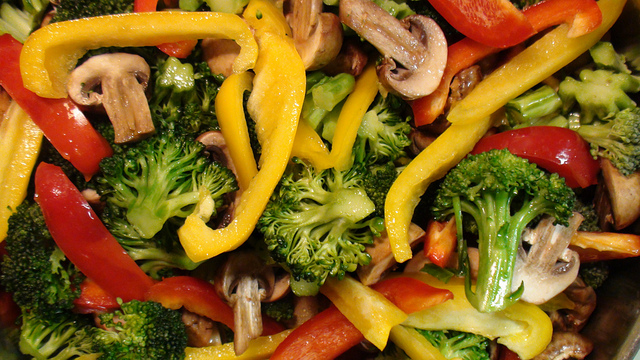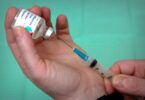The Centers for Disease Control offers advice on how to lower your blood pressure to avoid hypertension. DASH, the dietary approach to stop hypertension (high blood pressure), is an eating program that’s easy to implement. The goal is to consume no more than 1,500 milligrams of sodium a day.
The highest acceptable level of sodium consumption is 2,300 milligrams a day. High sodium consumption generally leads to high blood pressure, an all too common condition among Americans. High blood pressure forces the heart to work harder than it should, often leading to heart disease and stroke.
One in three adults in the U.S. –65 million people–have high blood pressure. And, even if your blood pressure is normal at 55, you have a 90 percent chance of developing high blood pressure as you age.
Too many Americans have hearts that are many years older than they are, on average seven years older! Hearts age quickly for people who are overweight as well as for people who smoke and do not exercise. You can find out the age of your heart through this Just Care post: How young is your heart?
To keep your blood pressure down, what should you do?
- Exercise for at least 20 minutes five or more days a week; to stay motivated, ask a buddy to join you on a daily walk
- Maintain a healthy weight
- Drink no more than one or two alcoholic drinks a day
- Eat healthy, including: Fruits, vegetables, low-fat milk and yogurt, fish, poultry, nuts, whole grain products
- Avoid lean red meats, foods with added sugar, processed foods
- Take your blood pressure medicine as prescribed, generally every single day. Many Americans do not, to their detriment.
And, here’s how you can check your blood pressure at home.
Here’s more from Just Care:











…hmm avoid lean read meats? But is fatty meat also not good in another sense (the “bad” cholesterol)? Unfortunately I nee the proteins that red meat offers , without it I am sluggish and always feel tired even though I am sleeping well.
Fish is a good idea but quality grades of line caught fish (not the frozen overprocessed or farm raised kind) is very expensive particularly if you are on a tight fixed income such as I am. Poultry as well, as most inexpensive, non organic, industrial farm raised birds are filled with antibiotics and growth hormones as well as can be contaminated with dangerous bacteria. As a matter of fact most foods, including produce, that are grown/raised using natural organic rather than high volume production methods tend to be much healthier, due to lack of added hormones, antibiotics, pesticides, and herbicides, but unfortunately in this country, are more expensive.
Also maintaining a “healthy weight” is a relative and subjective matter. As some people get older they naturally gain weight due to a slowing of the metabolism or even genetic reasons which no amount of exercise or dietary modification will reverse. Considering that I am suffering from severe joint and bone issues as well as thin blood, the only form of exercise I partake in is walking and cycling (the latter even better than walking or jogging as it does impart as much shock to the bones and joints). On my income, I cannot afford a health club, and even if I could, I would not want to set foot into one as I don’t fit in with the younger “fitness crowd”.